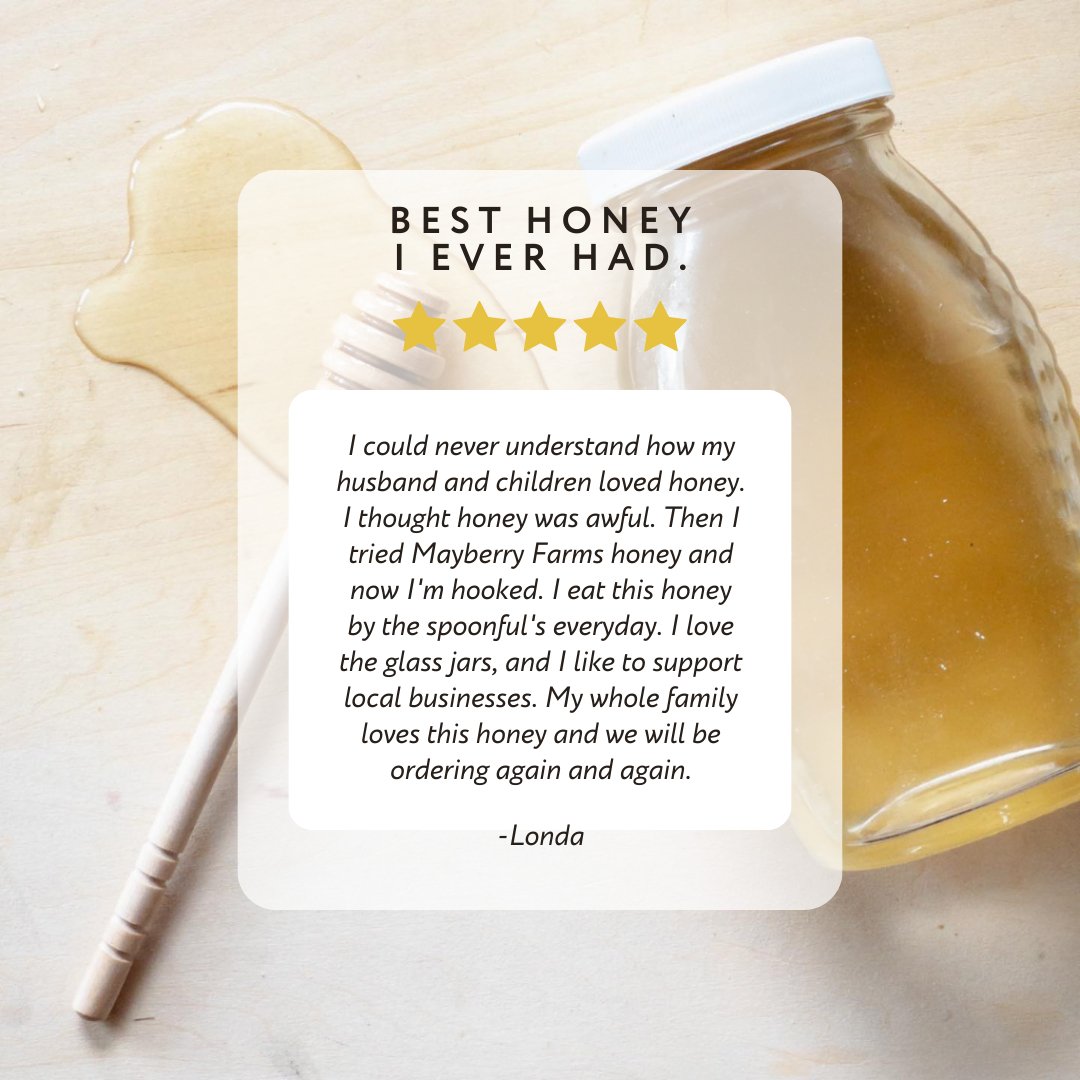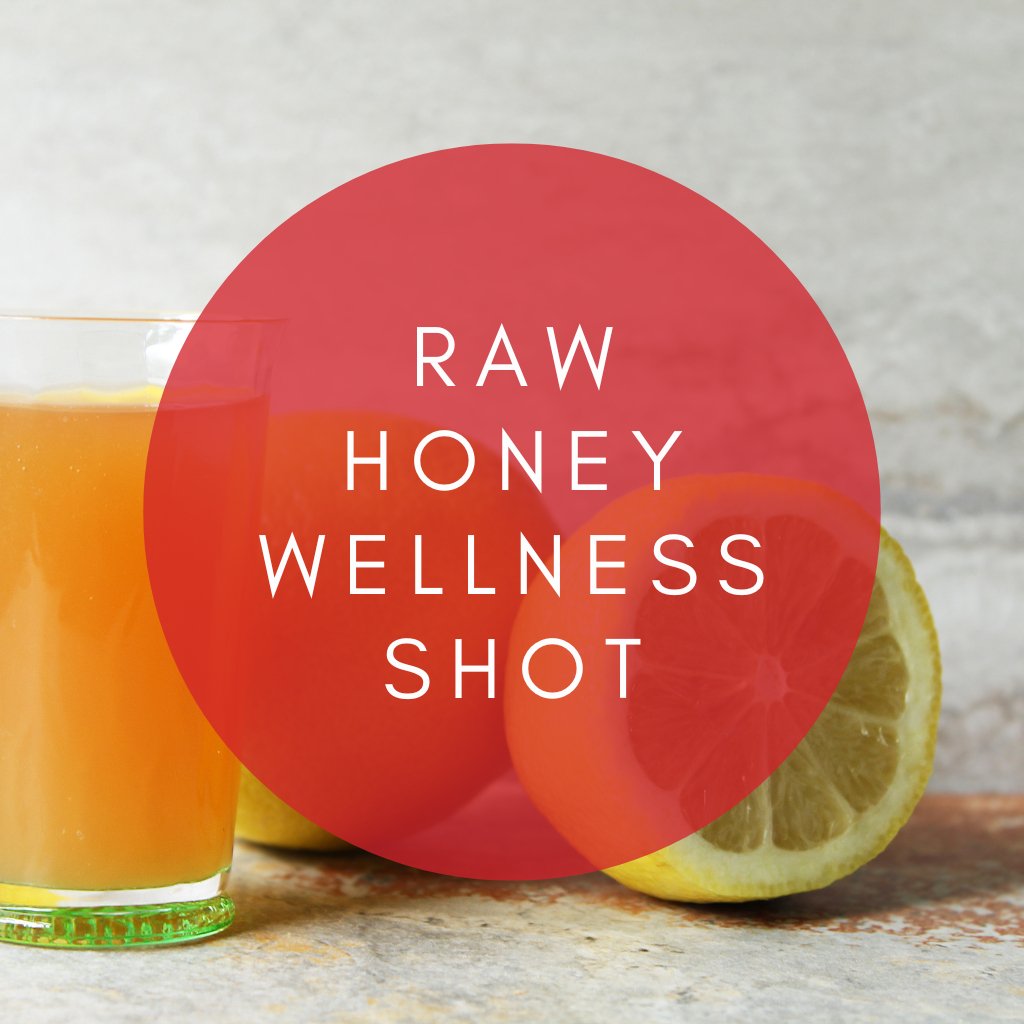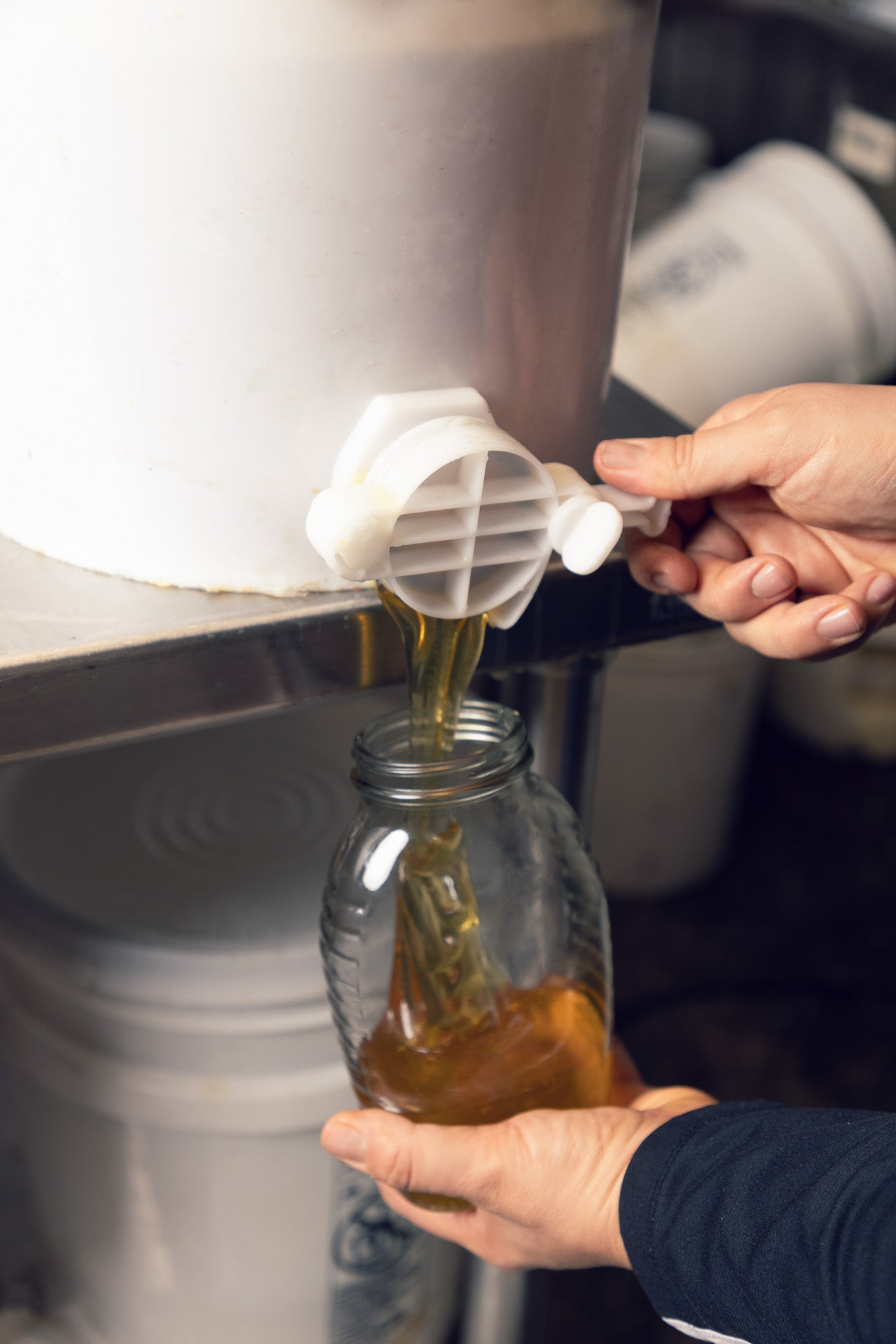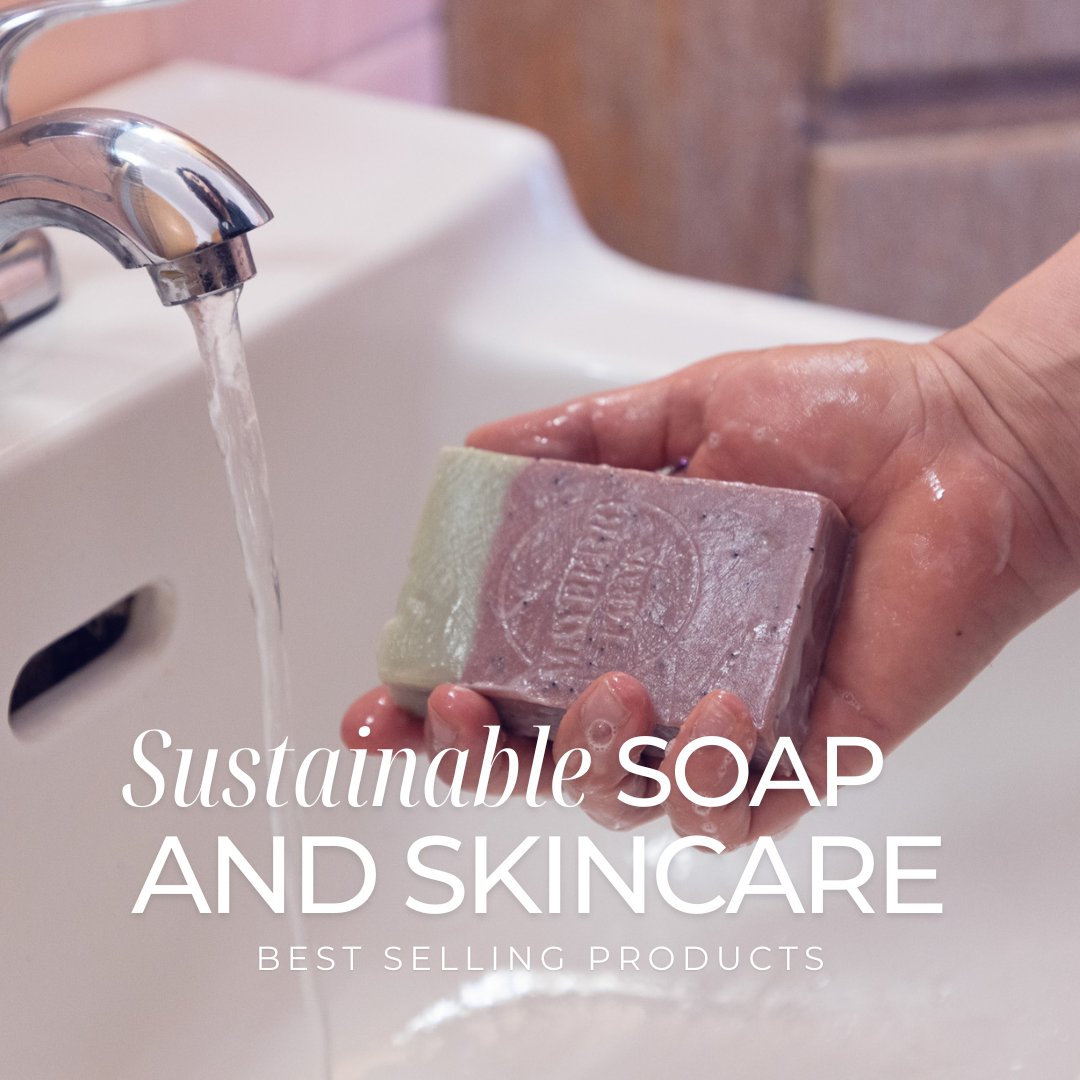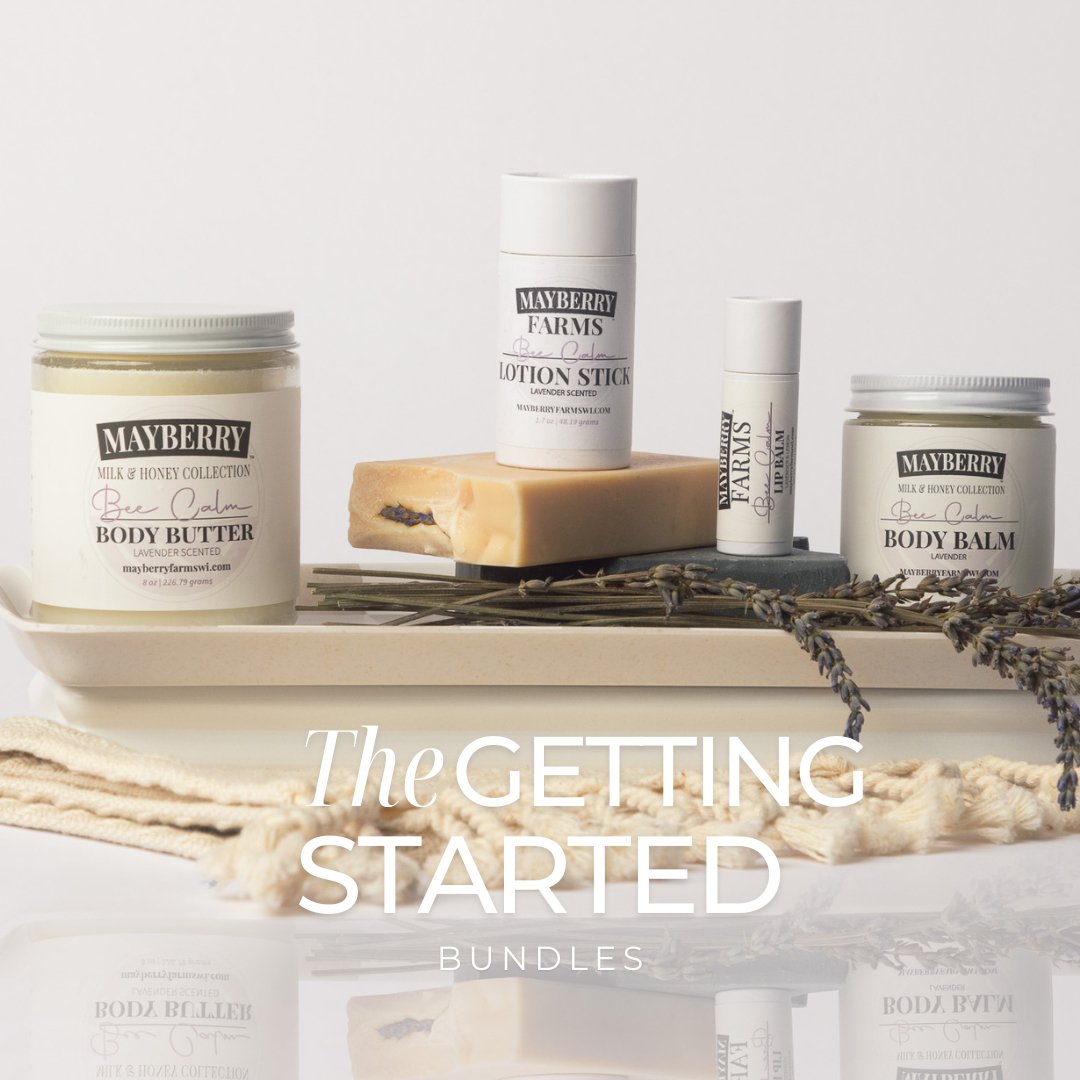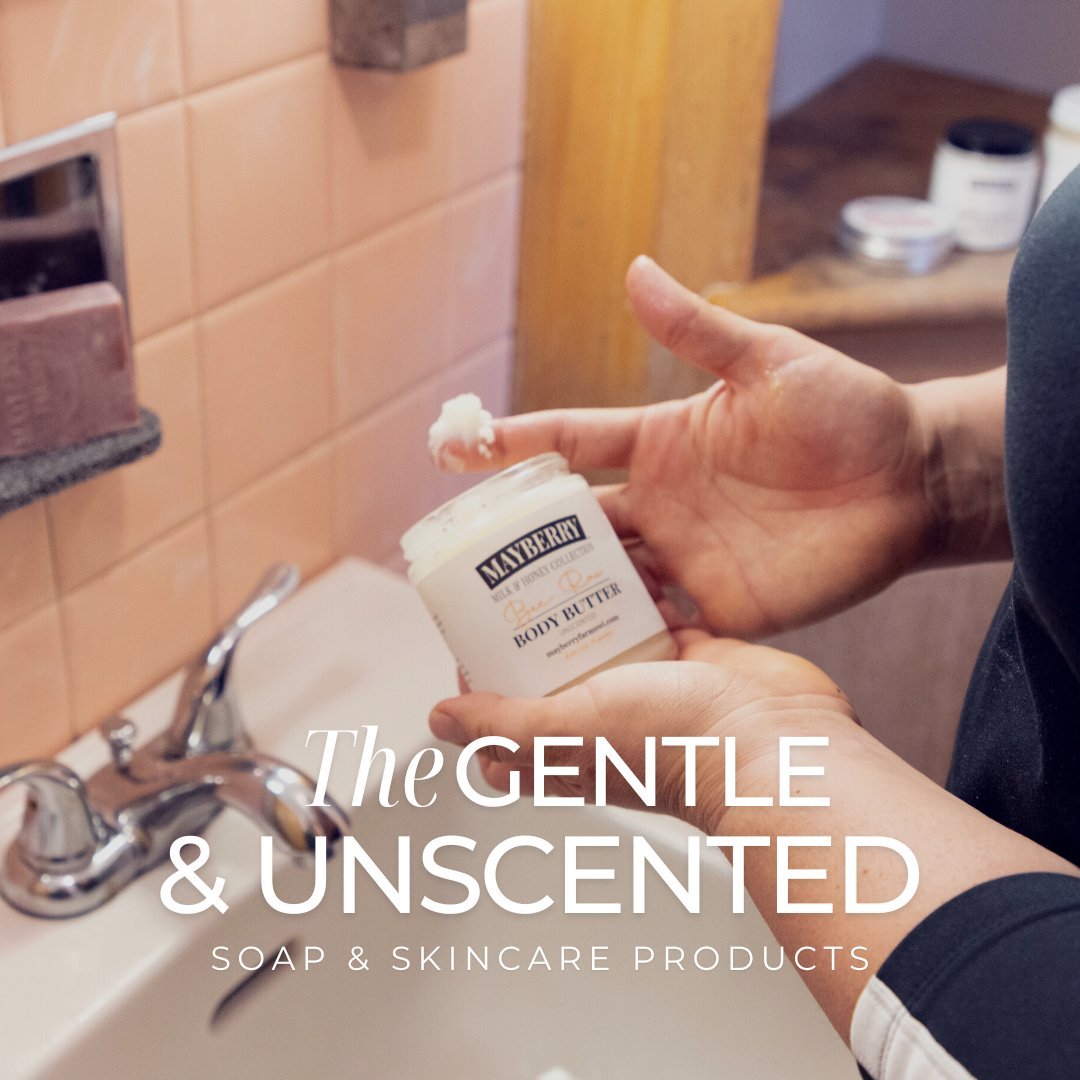Welcome to our FAQ page all about our raw honey, your go-to resource for answers to commonly asked questions. Whether you're a new customer seeking information or a returning picker looking for clarification, we've compiled a comprehensive list of inquiries to ensure you have all the necessary information at your fingertips.
If you don't find what you're looking for, feel free to reach out to our dedicated support team for further assistance.
FAQ 1. What is raw honey?
Raw honey is honey that has not been heated or processed in any way. It is harvested straight from the beehive and may contain traces of pollen, propolis, and beeswax. Unlike commercial honey, which often undergoes pasteurization and filtration, raw honey retains all of its natural enzymes, antioxidants, vitamins, and minerals. It typically has a thicker consistency and may appear cloudy or contain particles, as it hasn't been filtered to remove impurities. Raw honey is prized for its potential health benefits and unique flavor profiles, which can vary depending on the floral source of the nectar collected by the bees.
FAQ 2. How is raw honey different from regular honey?
Raw honey undergoes minimal processing, typically only being strained to remove large debris, while regular honey is often pasteurized and finely filtered, which can reduce its nutritional value. Raw honey is not heated above natural hive temperatures, preserving its enzymes and nutrients, while regular honey may undergo high-temperature heating, altering its flavor and nutritional content. Additionally, raw honey has a thicker consistency, a more complex flavor profile, and a tendency to crystallize more quickly compared to regular honey.
FAQ 3. What are the benefits of consuming raw honey?
Raw honey offers potential health benefits such as being rich in antioxidants, providing essential vitamins and minerals, and serving as a natural energy source. It can also soothe sore throats, aid in wound healing, promote digestive health, and potentially alleviate allergies. However, it's crucial to consume raw honey in moderation due to its high sugar content, and it should not be given to infants under one year of age due to the risk of botulism.
FAQ 4. Is raw honey safe to eat?
Raw honey is generally safe for most people to eat, but there are important things to remember:
- Don't give raw honey to infants under one year old due to the risk of botulism.
- Some individuals may have rare allergies to honey or its components, so be cautious if you have known allergies.
- Make sure to get raw honey from a trustworthy source to avoid contamination.
- Enjoy raw honey in moderation for its potential health benefits, but keep these considerations in mind for safety.
FAQ 5. Can raw honey help with allergies?
Raw honey may provide some relief for allergies, as it contains traces of pollen, which could potentially help desensitize the body to allergens. However, scientific evidence supporting this claim is limited, and individual results may vary.
FAQ 6. How should raw honey be stored?
Raw honey should be stored in a cool, dry place away from direct sunlight and heat sources. It's best to keep it tightly sealed to prevent moisture absorption and crystallization. While honey has a long shelf life, storing it properly helps maintain its quality and flavor for longer periods.
FAQ 7. Can raw honey crystallize? If so, is it still safe to eat?
Yes, raw honey can crystallize over time, especially if it's stored in cooler temperatures. Crystallization is a natural process and doesn't indicate that the honey has gone bad. In fact, crystallized honey is still safe to eat and retains all of its nutritional benefits. If you prefer liquid honey, you can gently heat the crystallized honey in a warm water bath to return it to its liquid state. However, be cautious not to overheat it, as excessive heat can degrade the honey's quality.
FAQ 8. Is raw honey suitable for vegans?
The suitability of raw honey for vegans is a matter of personal interpretation and dietary choices. Honey is a product made by bees, and some vegans choose to avoid it due to concerns about the exploitation of bees in commercial beekeeping practices. Bees produce honey as a food source for themselves, and some argue that harvesting honey from bees interferes with their natural behavior and can harm bee colonies.
However, whether raw honey is considered suitable for a vegan diet depends on individual beliefs and practices. Some vegans may choose to consume honey from ethical and sustainable beekeeping practices or substitute honey with plant-based sweeteners in their diet.
Ultimately, it's up to each individual to decide whether they consider raw honey to be compatible with their vegan lifestyle.
FAQ 9. Are there any risks associated with consuming raw honey?
While raw honey is generally considered safe for consumption, there are a few risks associated with it:
1. **Infant botulism:** Raw honey should not be given to infants under one year of age due to the risk of infant botulism. This rare but serious illness can occur if infants ingest honey contaminated with Clostridium botulinum spores, which can grow and produce toxins in the infant's immature digestive system.
2. **Allergic reactions:** Some individuals may be allergic to components in honey, such as pollen or bee proteins, which could lead to allergic reactions ranging from mild to severe.
3. **Bacterial contamination:** Although honey has natural antimicrobial properties, there is a small risk of bacterial contamination, especially if the honey is improperly stored or handled.
4. **High sugar content:** Like other sweeteners, honey is high in sugar and calories. Consuming large amounts of honey regularly can contribute to weight gain and increase the risk of dental cavities and other health issues associated with excessive sugar intake.
To minimize these risks, it's essential to purchase raw honey from reputable sources, store it properly, and use it in moderation. Additionally, parents should avoid giving honey to infants under one year of age. If you have concerns about consuming raw honey, consult with a healthcare professional.
FAQ 10. Can raw honey be used topically for skincare?
Yes, raw honey can be used topically for skincare purposes. It has natural antibacterial and antimicrobial properties, making it beneficial for treating minor wounds, cuts, and burns. Raw honey is also known for its moisturizing and soothing properties, which can help hydrate the skin and alleviate dryness and irritation.
Additionally, raw honey contains antioxidants and enzymes that may promote skin health and rejuvenation. It can be used as a facial mask to help cleanse pores, reduce inflammation, and improve overall skin texture.
When using raw honey topically for skincare, it's essential to choose high-quality, unprocessed honey and perform a patch test on a small area of skin to check for any allergic reactions or sensitivities. Additionally, be mindful of any added ingredients or contaminants in the honey, as these could potentially irritate the skin.
Overall, raw honey can be a natural and effective ingredient in skincare routines, but individual results may vary. If you have specific skin concerns or conditions, it's always a good idea to consult with a dermatologist or skincare professional before incorporating new products into your routine.
FAQ 11. How can I tell if honey is truly raw?
Determining if honey is truly raw can be challenging, as there are no strict regulations or standardized labeling requirements for raw honey. However, here are some factors to consider when assessing the rawness of honey:
1. **Appearance:** Raw honey typically has a cloudy or opaque appearance, as it contains natural particles of pollen, beeswax, and propolis. It may also have a thick consistency and crystallize over time.
2. **Texture:** Raw honey tends to have a thicker, more viscous texture compared to processed honey, which is often thinner and more fluid.
3. **Aroma and Flavor:** Raw honey may have a more complex aroma and flavor profile, reflecting the floral sources from which the bees collected nectar. It may exhibit floral, fruity, or herbal notes, depending on the types of flowers in the vicinity of the hive.
4. **Labels and Certifications:** Look for honey labeled as "raw" or "unprocessed," although keep in mind that these terms are not regulated. Some certifications, such as "organic" or "certified bee-friendly," may provide additional assurance of the honey's authenticity and quality.
5. **Source:** Purchasing honey directly from local beekeepers or reputable suppliers who prioritize ethical and sustainable beekeeping practices can increase the likelihood of obtaining raw honey.
6. **Crystallization:** Raw honey is prone to crystallization, a natural process where sugars in the honey form solid crystals over time. Crystallization is more common in raw honey than processed honey and is not an indicator of spoilage.
Ultimately, while these factors can provide some insight into the rawness of honey, there is no foolproof method for determining its authenticity. If you have concerns about the rawness of honey or its sourcing, consider reaching out to the supplier for more information or seeking honey from trusted sources.
FAQ 12. Does raw honey expire?
Raw honey does not expire in the same way that many other foods do. Due to its low moisture content and acidic pH, honey has natural preservative properties that inhibit the growth of bacteria and other microorganisms. When stored properly in a sealed container at room temperature or below, raw honey can remain stable indefinitely.
However, over time, raw honey may change color, flavor, and texture. It may also crystallize, becoming thicker and grainier. These changes are natural and do not necessarily indicate that the honey has gone bad. Crystallized honey is still safe to consume and can be returned to its liquid state by gently heating it in a warm water bath.
While raw honey may not expire, it's still essential to store it properly to maintain its quality over time. Keep honey tightly sealed in a cool, dry place away from direct sunlight and heat sources to prevent moisture absorption and oxidation, which could affect its flavor and shelf life. If stored correctly, raw honey can be enjoyed for years to come.
FAQ 13. Can raw honey be used as a sugar substitute in recipes?
Yes, raw honey can be used as a natural sweetener and sugar substitute in recipes. Its unique flavor and sweetness can enhance a wide variety of dishes, including baked goods, desserts, marinades, dressings, and beverages.
When substituting honey for granulated sugar in recipes, it's important to keep in mind a few factors:
1. **Sweetness:** Honey is sweeter than sugar, so you'll typically need less honey than sugar to achieve the desired level of sweetness. As a general rule of thumb, you can substitute honey for sugar using a ratio of about 3/4 cup of honey for every 1 cup of sugar. You may also need to adjust the amount of other liquids or ingredients in the recipe to maintain the desired consistency.
2. **Moisture:** Honey adds moisture to recipes, so using it as a sugar substitute can result in a softer texture and more moist baked goods. You may need to reduce the amount of other liquid ingredients in the recipe or increase the amount of flour to compensate for the additional moisture from the honey.
3. **Flavor:** Honey has a distinct flavor that can influence the taste of your dish. While this can enhance certain recipes, it's essential to consider how the flavor of honey will complement the other ingredients in your dish. For example, honey pairs well with fruits, nuts, spices, and savory ingredients like mustard and vinegar.
4. **Baking:** When using honey in baked goods, it's important to lower the oven temperature by about 25°F (14°C) to prevent over-browning or burning, as honey caramelizes more quickly than sugar. You may also need to adjust the baking time accordingly.
Overall, raw honey can be a versatile and flavorful alternative to sugar in recipes, adding depth of flavor and natural sweetness to your favorite dishes. Experiment with different ratios and recipes to find the perfect balance for your taste preferences.
Have a question we didn't answer? Send us an email to hello@mayberryfarmswi.com and we'll do our best to answer you in a timely manner. Thank you for being here!

